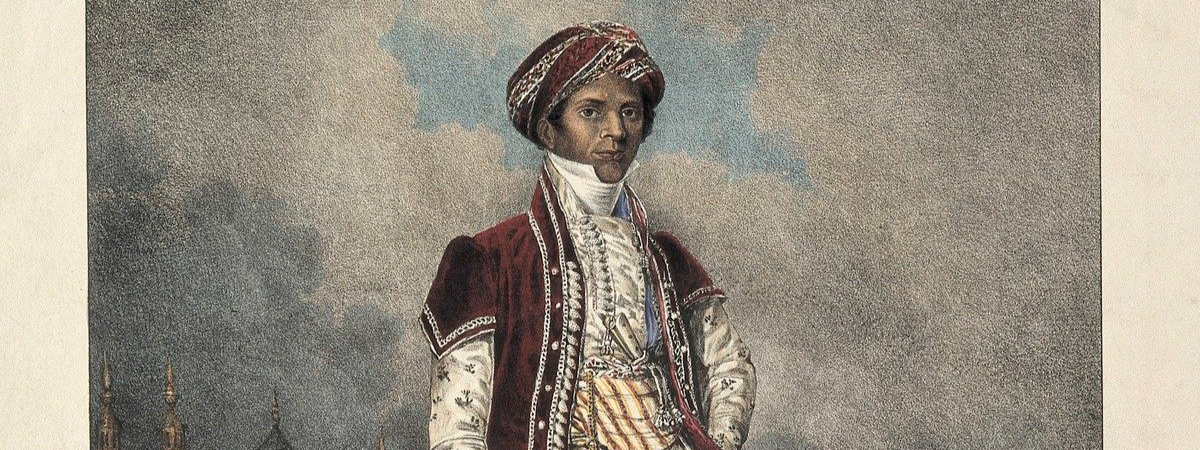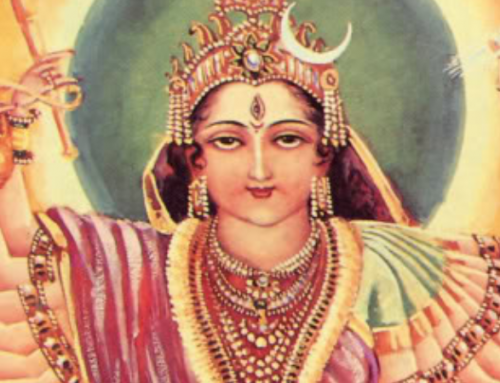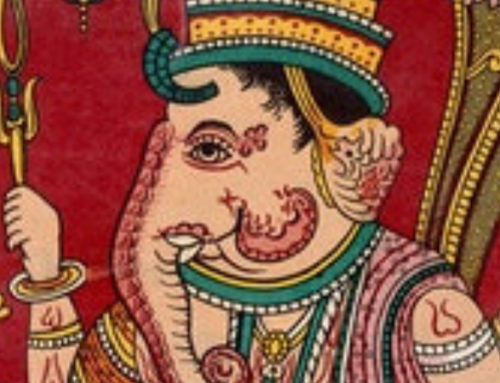
Sake Dean Mohammed
The word “shampoo” gained its current meaning of “lather and wash the hair” around 1860. A century earlier it was an Anglo-Indian word that meant “to massage, rub and percuss the surface of (the body) to restore tone and vigor”. The word “shampoo” comes from the Hindi champo, which is from the verb champna “to press, knead the muscles”. The story of how that word from India made it to England, and then the rest of the world, is ultimately the story of Sake Dean Mohammed, a gentleman who had attracted my attention long before January 15, 2019, when Google recognized him with a Google Doodle on its main page, or even September 29, 2005, when the City of Westminster (London) unveiled a Green Plaque commemorating the opening of his eatery there.
I first learned of the resourceful Mohammed (the “Sake” is an honorific that would now be transliterated “Sheikh”) about forty years ago, when researching for a book on Ayurveda. Mohamed was born in the city of Patna, then part of the Mughal Empire, in 1759. One Captain Baker took an interest in him and got him a job as a trainee surgeon in the British East India Company’s army, and when Baker returned to Ireland Mahomed went along.
Mahomed was an overachiever with a number of firsts to his credit. He authored the first book in English written by an Indian, a book of his travels that was released on January 15, 1794. Then, in 1810, after moving to London, he opened the first Indian restaurant in England: the Hindoostane Coffee House in George Street, near Portman Square. The restaurant offered Indian dishes and hookah, and provided a home delivery service, but was not successful financially and closed in 1812. Mahomed was merely ahead of his time; Indian food is now so popular in London (which boasts more than 100 Indian restaurants) that each October the city celebrates Curry Week.
Mahomed bounced back. In 1814, he and his family moved back to Brighton and opened the first commercial “shampooing” bath in England. The ocean that surrounds Britain is cold, so Mahomed’s facility funneled seawater into a heated indoor pool. Located on the seafront, “Mahomed’s Baths” offered therapeutic treatments with Indian oils. The business was an immediate success and Dean Mahomed became known as “Dr. Brighton” and “the Brighton Shampooing Surgeon”, and he was appointed shampooing surgeon to both King George IV and William IV. Lords and ladies alike flocked to him for both treatment and preventative care, hospitals referred patients to him, and odes were written to his expertise.
Mahomed wrote another two books, related to his therapeutic practices, but financial difficulties arose in this business as well, and the bathhouse was put up for auction in the late 1830s. He died on February 24, 1851, aged 91 or 92, and was buried in Brighton.
Sake Dean Mahomed was a true trailblazer, a promoter of cultural exchange, a relentlessly entrepreneurial spirit who paved the way for future generations of immigrants and businesspeople. And he could write! Salutations to this young Indian who boldly headed forth to blaze a path that many others have followed!


